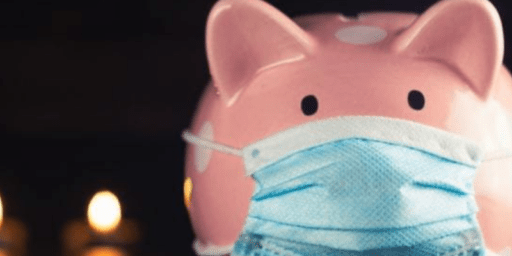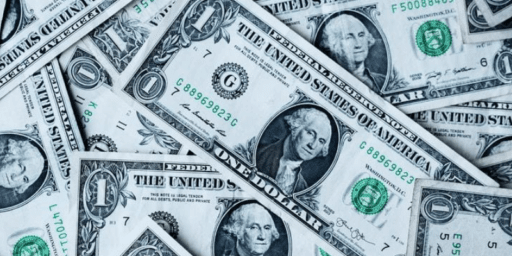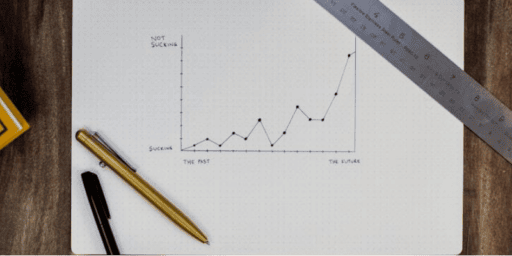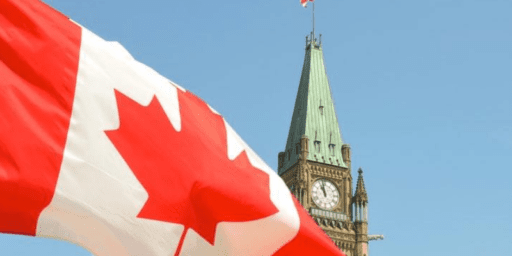Should University Students Contribute to an RRSP?
Linda, a University student, is on the financial ball and considering starting her RRSP contributions but is wondering if it’s the best choice. Here is the question:
I am going into my 3rd year of university and just started a well paying summer job. I have been hearing about RRSPs since high school and the value of starting it early. As this is my first job I have not reported income before this year. I already have a TFSA so perhaps it is simpler just to put my earnings there. It would be beneficial putting it in the TFSA if I needed to make a withdrawal, right? (because then there would be no penalties for withdrawing my money)
Are there any benefits for a student like me to start a RRSP at this stage? I couldn’t find much information targeted to my scenario, but I guess I am just an early and avid business student.
To start, RRSP contribution room is based on 18% of the previous year earned income + any unused contribution room from previous years. In this case, Linda states that she has never reported income before, thus I’m going to assume that she hasn’t built up any RRSP contribution room yet. However, even if she does have RRSP room available, should she contribute?
To me, it doesn’t make a lot of sense to contribute to an RRSP at this stage of her life as her income is low, thus the tax refund would be low. The goal of the RRSP is to contribute during high income working years and withdrawing during lower income retirement years. The higher the tax bracket, the greater the advantage of the RRSP and the opposite is true.
If Linda is dead-set on using the RRSP, then I would suggest contributing but carry forward the tax deduction for future higher income years. This way, she gets to take advantage of the tax deferral of the investment gain within RRSP, let her investments compound without tax drag, and look forward to large tax refunds in the future.
One issue with putting all your savings within an RRSP are the withdrawal penalties. Although Linda may be in a low tax bracket, thus withdrawals would face minimal tax, there is still the RRSP withholding tax upon withdrawal. In other words, upon withdrawing the first $5,000, 10% would be withheld and a greater percentage as the withdrawal amount increases.
To avoid the RRSP problems in this case, the Tax Free Savings Account (TFSA) provides an ideal location to store savings. While the deposits do not get a tax deduction, the withdrawals are not taxable or penalized in any way. The icing on the cake is that most gains within the account are not taxable. As Linda is a student, I’ll assume that she may need liquidity to pay for her studies in the upcoming semester, so I would suggest to continue putting cash in her TFSA.
Did you contribute to an RRSP as a student?










The best way to do it would be to contribute to TFSA so the money grows tax free within it, and when she has higher income to use TFSA assets to contribute to RRSP in kind. This way she would get a larger TFSA room and RRSP deduction in her higher earning years.
Hi Jeff,
While your comments are true, they don’t eliminate the value of RRSPs for most people. The clawbacks apply at some tax brackets and not others. After you retire, you can determine how much to withdraw each year and plan to minimize the effects of the clawbacks.
There are essentially 2 benefits of RRSPs:
1. You may be in lower tax bracket after you retire.
2. You pay no tax on the investment income over the years.
The first point needs to be looked at for every person, since it may or may not be true (with the clawbacks).
Ed
I believe I read here that RRSPs aren’t necessarily of any value when, in retirement, one takes pension clawbacks and other reductions into account. If so, this article continues to perpetuate a myth.
Thank you all so much. Thank you very much Geoff. In fact, the idea about seeing a finanical planner really scared me but Geooff your suggestion sounds really good to me. Yes, I need to understand all those terms. It feels like I am a bit behind given my age and all that. I spent so many years in university, but better now than later. Will do just that. certainly given my circumstance, I cannot afford to lose any principal at this stage. I will open RRSP and start some TFSA as well. Thank you once again!
Thanks for both websites. I have actually started reading them of late, THANK YOU!
@ Ruth – with respect to Ryan, I think you need to read and research more, and act leses. Do not go into a financial planner meeting without understanding what the following are: MER, rate of return, equities, bonds, stability, security, fees, time horizon. Read this blog and canadiancapitalist.com.
Personally given your time horizons are SHORT (you want to buy a house, I assume sooner than later) than I think you should consider just opening an RRSP and putting the cash in there as a GIC or savings account. You can’t afford loss of that principal and have a short horizon. An RRSP is a vehicle, not a mutual fund – you can have cash, gics, savings account, stocks, bonds, whatever inside an RRSP. But before you think about doing what I suggest here, learn all you can. Act rashly and repent in leisure, applies here…
@Ruth
If you are in your 40’s and have not started to save for retirement yet, then I would say you need to get in touch with a financial planner to have a plan put in place. The overall financial plan is more important then the specific investment recomendation.
NO, NO NO and NO.
I was making approximately 35k while attending college and university in the early 2000’s. At 35k I might have been in the 23% bracket (live in Alberta), but now I’m in the highest tax bracket and wish I had saved my room until such time as I was in the highest tax bracket. It only makes sense to take the money and put it in a TFSA now and save the RRSP contribution room until you are in a higher earning spot. Then shift it into a RRSP 90 or 180 days (can remember which) before you plan on buying a house/condo and with draw it to buy your living space. Then only slowly repay your RRSP while maxing out the TFSA for a few years, then contribute to your RRSP a whole chunk before you get married or have kids. Alternatively, if you are unemployed for a year and just went from a high income tax bracket, to a low one, then it might make sense to withdraw from your RRSP while you are in a low wage earning year and take the tax hit and move the money into a TFSA until such time as you are back in a higher tax bracket. I plan on withdrawing a chunk of cash from my RRSPs in my mid 30’s and going on a holiday for a year and not working as by my calculations, I’m saving more then I’ll need for my retirement. Plus you m Does this make sense?
In my grade 12 calculus class I was taught the mathematical significance of investing early and diversifying my investments. I also quickly learned just how much school was going to cost me. Students are in a sticky situations because many of them are in debt due to student loans, and yet the early 20s is a good time to start your RRSPs. I would say to start investing as soon as possible, but to make sure that you have a plan in place to pay off any student debt before you lock away money in RRSPs.
I guess I need to start contributing to RRSP. I am currently making about 70k and in my forties. Just got a good job. Can anyone please tell me what would be the best investment I should make within the RRSP? My partner and I are also planning to buy our first home and we are planning to use the HBP. Any suggestions would be very much appreciated.
Thanks
I wouldn’t use an RRSP in college. Put it all in a TFSA or just save it. I personally know it is VERY difficult to plan ahead more than a year while in college. And while you may have 10k kicking around with nothing to do you never know what going to come up. Maybe you’ll get an amazing research opportunity but will have to sacrifice a summer job. Or maybe you’ll change majors and your entire school schedule will change. Having money “locked” away may be a bad thing.
Also, while it’s not exactly on the up and up, for student making not too much (<12k or so), in a year, you're probably eligible for some sort of student loan. And if you can "give" that 10k you have to parents or siblings you may stand to get several thousand, instead of nothing, in interest free loans. In addition, some of your loan money is often bursary money. And if you apply for student loans, that may also qualify you for all sorts of other tuition reductions or university bursaries.
Just something to keep in mind.